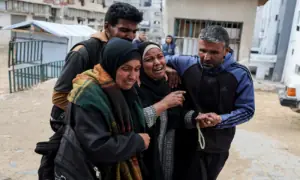Your everyday guide for dealing with rejection
3 min readRejection be it in education, career, or a relationship can often be difficult to receive. There are two types of ways people react to rejection. For some, it’s a breakthrough point where they channel their energy and come out stronger, while for others it can lead to trauma and grief.
Sidra Iqbal on her show ‘Aaj Pakistan,’ spoke about the consequences of rejection and the right way to handle it with clinical psychologist Tahira Rabab, HR consultant Faisal Akbar Awan and HR specialist Komal Khawaja.
One of the biggest consequences of rejection is stress, which is the leading cause of death in teenagers and adults around the world.
“Most people let every rejection create a hole in their being, which I believe is self-enmity,” said Awan. These people remain in the healing phase which makes their journey more difficult.
Receiving rejection can be most painful for people who thrive on validation and the need to please others. When they’re told ‘no’ under particular circumstances, they might regress into themselves and into their inner child who had experienced neglect in the past.
“Childhood traumas, rejections, neglect should be resolved early on, or else they remain with us throughout our lives and impacts our day-to-day activities, attachments and relationships,” said Rabab.
Unresolved childhood trauma comes back to haunt people and keeps hurting them every time they receive even the smallest of rejections. It becomes a go-to reaction for them. This is most common in people who had an emotionally or physically unavailable caretaker.
Self-awareness, self-worth, and self-efficacy are three steps that can help people deal with rejection and turn it into a positive outcome.
When somebody rejects you, it’s imperative to know that it’s just an opinion. It’s only possible to do so when you have a solid sense of self-worth and self-awareness.
Zooming in on the rishta-culture of our society, a girl is rejected based on her appearance, her height, weight and even her complexion. It’s important for this girl to be able to create a boundary and take the comment as somebody’s, often baseless, opinion.
“Train your mind to think that your self-worth is only under your own control, so anything the other person says will not impact it. I know who I am, I know what I bring to the table. I would love validation of course but if you’re criticising me, I should be able to understand that it’s just your opinion,” said Komal.
Self-awareness plays an important role here. If one knows one’s strengths and weaknesses, then it becomes easy to accept and receive others’ rejection or opinions about oneself.
Then comes self-efficacy, which is the ability to cope with a difficult situation in a positive manner. As an adult, you have the choice to either be reactive based on your past experiences or to channel your knowledge and education to react in a positive manner. People with high self-efficacy can handle stressful situations better.
You can have a positive reaction after being rejected if you figure out why it happened.
“If the factors are under your control, for example, it was your communication skills or dressing, then you should try to improve that without having any hard feelings,” said Rabab.
For the latest news, follow us on Twitter @Aaj_Urdu. We are also on Facebook, Instagram and YouTube.


























Comments are closed on this story.